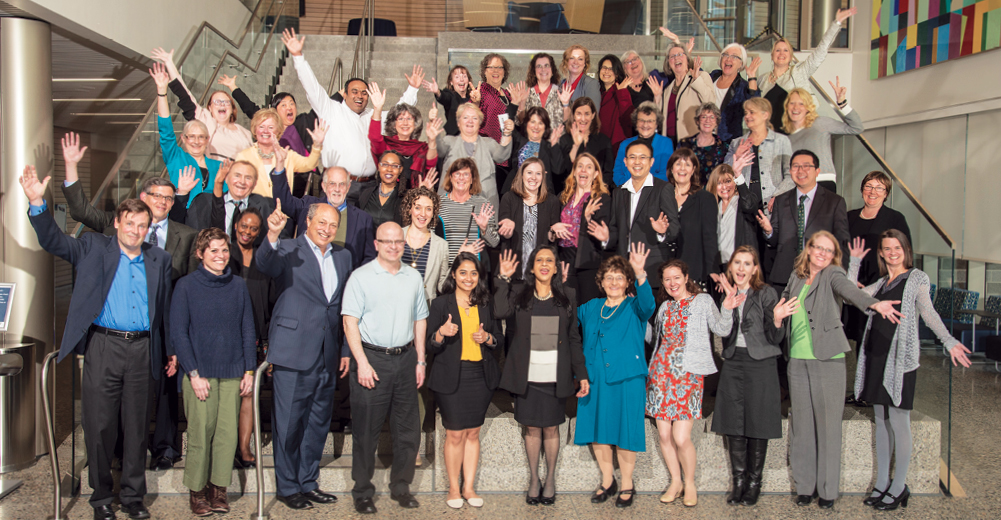
School of Nursing brokers valuable discussion on family caregiving
The Family Caregiving Institute at the Betty Irene Moore School of Nursing at UC Davis brought together more than 50 national and international experts in family caregiving last spring at a two-day summit designed to map out research priorities so that investment by funders yields the greatest impact.
The experts confirm statistics demand the focus. The number of older adults living with chronic disease, functional decline and serious illness is growing exponentially at a time when availability of both family and professional caregivers is strained. About one in five American households is involved in a wide range of caregiving activities that vary in intensity, from checking on aging parents to providing total care to a disabled family member.
“Every year, there are fewer people available to engage in family caregiving than we have people who are turning 65. In 1950, there were approximately three adults over the age of 65 for every 100 people of working age. By 2050, that ratio is expected to be 30 to 100,” says Terri Harvath, executive associate dean and director for the institute at the School of Nursing. “It is incumbent upon us to figure out how we can best support the families who are providing care to older adults because we as a nation and world cannot afford to pay for the care that older adults will need.”
Attendees from disciplines including nursing, medicine, social gerontology and computer technology participated in small-group discussion and large-format collaboration to arrive at 10 priorities. They focused on multi- cultural approaches and the use of technology to optimize care for people with serious illnesses in four main areas.
“I hope we start to think about caregiving more creatively, because the new generations of caregivers are not thinking in the most tried-and-true ways we’re accustomed to. We have to be forward thinking in our approach,” says Kathy Kelly, executive director of the Family Caregiver Alliance.
“I think nursing gets this issue better than most fields I see,” adds Kenneth Hepburn, a gerontologist and professor at the Nell Hodgson Woodruff School of Nursing at Emory University. “The fact that resources have been poured into a caregiving institute gives me tremendous optimism.”
Funded through a grant from the Gordon and Betty Moore Foundation, the goal of the Family Caregiving Institute is to advance research, education and policy to support caregivers in the demands that impact their mental, physical and financial health, as well as threaten their quality of life.
“There is increased attention focused on family caregiving by policymakers and the National Institutes of Health. This summit builds on those reports and conferences,” Harvath says. “Through the summit, we now have a list of prioritized areas for caregiving research that can help funders, both federal and also foundations interested in this area, to make decisions about how best to steward the research dollars to have maximal impact in high-need areas.”
Family Caregiving Institute Research priorities
Trajectory of family caregiving
Since caregiving can have either a gradual or a sudden onset, can be episodic or chronic, or a combination of these, caregivers needs and most-needed supports over time must be understood by researchers.
Technology in caregiving
Technology innovations continue to rapidly accelerate. Researchers need to understand how to best use technology to support caregivers, either in their learning needs or as an adjunct to care.
Unique needs of family caregiver populations
Historically, caregivers from certain populations, such as under-represented minorities or members of the LGBTQ community, are largely ignored in previous caregiving research. The summit sheds light on their unique experiences and what additional supports may be needed.
Heterogeneity of family caregiving
Caregiving is different whether caring for someone with dementia versus cancer, if care is handled from a distance or through someone living in the home, in a rural or an urban area. Experts hope to better understand how those different variables impact caregiving and how they need to influence the research conducted.

